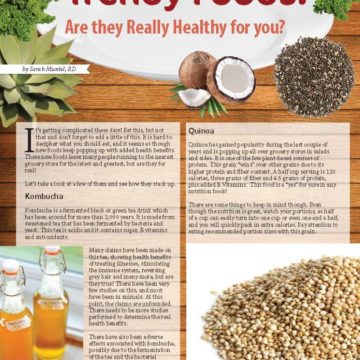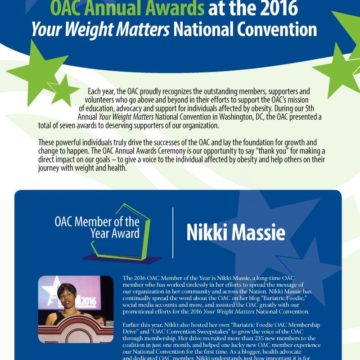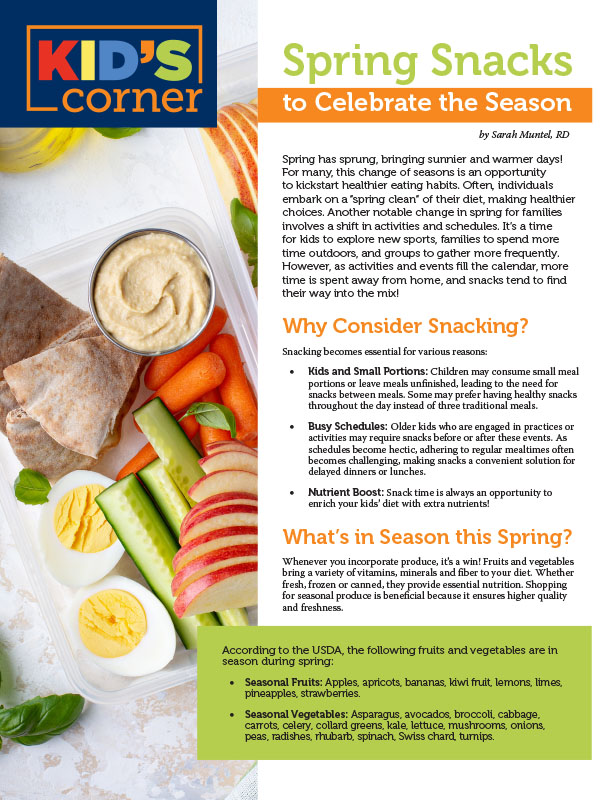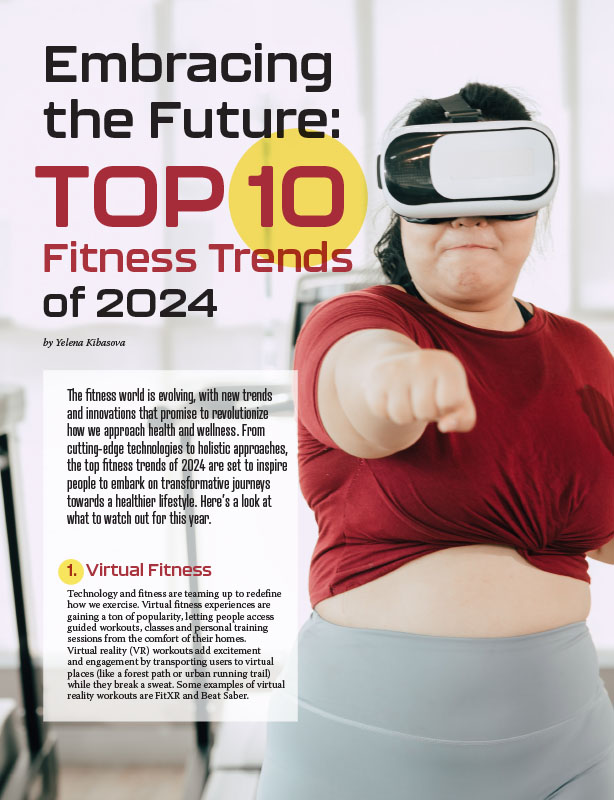Online Resources for Health, Fitness and Well-being

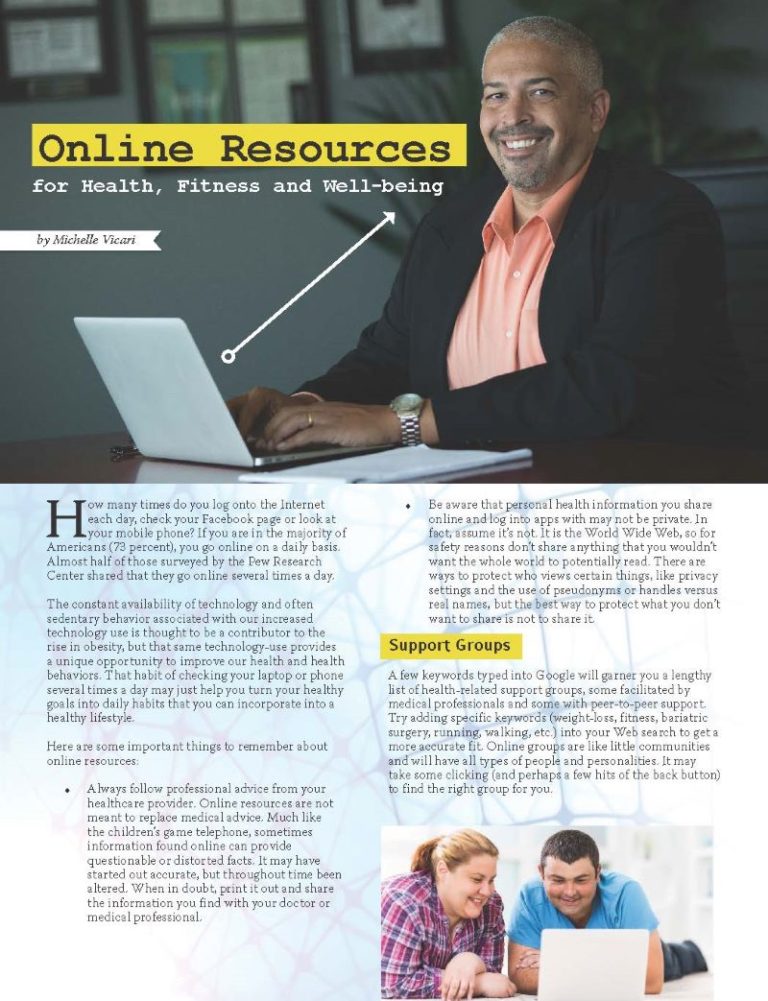
by Michelle Vicari
Summer 2016
How many times do you log onto the Internet each day, check your Facebook page or look at your mobile phone? If you are in the majority of Americans (73 percent), you go online on a daily basis. Almost half of those surveyed by the Pew Research Center shared that they go online several times a day.
The constant availability of technology and often sedentary behavior associated with our increased technology use is thought to be a contributor to the rise in obesity, but that same technology-use provides a unique opportunity to improve our health and health behaviors. That habit of checking your laptop or phone several times a day may just help you turn your healthy goals into daily habits that you can incorporate into a healthy lifestyle.
Here are some important things to remember about online resources:
- Always follow professional advice from your healthcare provider. Online resources are not meant to replace medical advice. Much like the children’s game telephone, sometimes information found online can provide questionable or distorted facts. It may have started out accurate, but throughout time been altered. When in doubt, print it out and share the information you find with your doctor or medical professional.
- Be aware that personal health information you share online and log into apps with may not be private. In fact, assume it’s not. It is the World Wide Web, so for safety reasons don’t share anything that you wouldn’t want the whole world to potentially read. There are ways to protect who views certain things, like privacy settings and the use of pseudonyms or handles versus real names, but the best way to protect what you don’t want to share is not to share it.
Support Groups
A few keywords typed into Google will garner you a lengthy list of health-related support groups, some facilitated by medical professionals and some with peer-to-peer support. Try adding specific keywords (weight-loss, fitness, bariatric surgery, running, walking, etc.) into your Web search to get a more accurate fit. Online groups are like little communities and will have all types of people and personalities. It may take some clicking (and perhaps a few hits of the back button) to find the right group for you.
Here are some online support resources that I recommend:
My Fitness Pal Community
www.Community.MyFitnessPal.com/en/Categories
(Free, registration required to post)
Weight Watchers
www.weightwatchers.com/au/connect-community-support
(membership required)
T.O.P.S. Take Off Pounds Sensibly
www.TOPS.org
(membership required)
ObesityHelp
www.ObesityHelp.com
(Free, registration required to post)
Bariatric Pal
www.BariatricPal.com
(Free, registration required to post)
Thinner Times Forums
www.ThinnerTimesForum.com
(Free, registration required to post)
Hospital Support Groups: Ask your physician, bariatric surgeon or dietitian if he, she or the local hospital has a support group and if it has an online component. Many do.
Find Support on Social Media
Facebook Groups
Type keywords in the search box and you will have hundreds of groups come up. Most are peer-to-peer support.
On social sites like Twitter, a hashtag is a word or phrase preceded by a hash or pound sign (#) used to identify messages on a specific topic. Finding anything on Twitter can be done using the right hashtag. Type a hashtag in the Twitter search box to find people who are tweeting about a particular health topic of interest, and then be sure to follow those people. Some popular hashtags include: #weightloss #health #fitness #nutrition #lowcarb #wls #walking #running #yoga
How to find health related hashtags: www.Symplur.com/Healthcare-Hashtags/ While on Twitter, be sure to follow @ObesityAction, @YWMOAC and myself, @Eggface.
Tweet Chats are organized events where people participate in an interactive conversation through tweets on Twitter. Many are hosted by doctors, dietitians or health professional groups. The conversation usually focuses on a pre-arranged topic, and a specific hashtag for the tweet chat allows the conversation to be easily followed. The chats are scheduled for a specific time and date, but you can always just scroll through the hashtag that was used to read the information shared and follow some favorite tweeters.
Some frequent health-related tweet chats include: #HealthChat #HealthTalk #abcDRBchat #HealthTipsChat #HACHat #StartSmall #RDChat
At first glance, Instagram appears like a place to share photos of your dog or kids. Much like using hashtags elsewhere on social networks, hashtags on Instagram help users organize and categorize photo content. Search hashtags like #fitness, #nutrition, #recipes, #weightlossjourney and #WLSCommunity to lead you to others who are sharing about those subjects.
Pinterest is a visual bookmarking site that allows you to create boards of things that you find online, with each of these things being referred to as a “pin.” Pinterest users can find recipes, health tips, sample menus, workouts and motivational quotes. Search by topic and look for pages authored by sources like government agencies, trusted nonprofit organizations and health professionals.
The Obesity Action Coalition has a great page (www.Pinterest.com/ObesityAction).
Some other standout pages include:
- Everyday Health (www.Pinterest.com/EverydayHealth)
YouTube
The largest video sharing site is a great source for free workouts! Be aware that many are created by non-fitness professionals, and if you’re just beginning to exercise, start cautiously and progress slowly. It’s important to always consult your doctor before starting an exercise program.
Here are some YouTube channels of note:
Mobile Fitness Apps
Whether you’re trying to lose weight, walk more steps in a day, workout in your living room, or drink more water, a few helpful nudges from the mobile phone in your pocket might make all the difference in reaching your health goals.
Here are some mobile fitness apps I recommend:
Lose It! (Free, premium 39.99/yr.) – This health tracker allows you to keep a food diary and exercise log. It is compatible with many fitness devices. It also has a barcode scanner for entering packaged foods into your food diary. Lose It! has an active chat community and a tab called “challenges” where you can participate in fitness and health challenges with other users or even create your own.
MyFitnessPal (Free, premium 49.99/yr.) This app is consistently on every best health apps list because it really is one of the best. Users input meals, snacks and drinks they consume, as well as the calories expended in exercise and movement. It’s compatible with a number of fitness trackers and can automatically pull that data in daily. Entering what you consume into your database is slow going for the first few weeks, but we generally repeat favorite foods and once they are entered the process becomes quicker. There is a great feature in the app to scan barcodes so packaged foods are a snap to enter. You also can connect with the MyFitnessPal support community for motivation and to cheer each other on.
Fitbit (Free, but Fitbit brand activity tracker is needed for full utilization) – Fitbit is one of the most popular activity trackers on the market. It has its own app to track activity, record workouts and log food from its extensive database of nutritional information. It also features a barcode scanner, and it’s a great way to connect with friends and family who are also using the tracker.
If you want to lose weight, MyFitnessPal, Lose It! and the Fitbit app are very helpful tools. Let’s say you want to lose 10 pounds in 10 weeks (consult your doctor before starting any weight-loss program). You can enter that information in, and the apps will provide a daily number of calories you should aim for in order to meet your goal.
Here are some other great apps to help you with nutrition:
Waterlogged (Free) – It’s easy to mistake thirst for hunger! Use this app to track your daily water intake and get reminders when it’s time to drink up.
Calorie King (Free) – This app contains over 70,000 foods, including items from 260 fast food chains and restaurants. By tapping on a specific food, you can access detailed information including calories, carbohydrates, protein, fiber, saturated fat, trans fat, cholesterol, sodium and alcohol.
HealthyOut (Free) – This app can help you find low-calorie, low-carb dishes at local eateries. You can search by cuisine type or diet, like vegetarian or gluten-free options or by popular commercial diets like South Beach or Atkins.
Besides a healthy diet, nothing is more important to health than regular physical activity.
These apps will get you moving:
Sworkit (Free) – An app that allows you to customize and play personalized video workouts. Choose the types of workout that you would like: strength, cardio, yoga or stretching, and you’ll receive video instruction of the routine. Pick the amount of time you would like to work out. It can range anywhere from 5 minutes to 60 minutes.
MapMyFitness (Free) – This fitness tracking app enables you to use the built-in GPS of your mobile device to track all of your fitness activities. Record your run, walk, hike and ride details, including duration, distance, pace, speed, elevation, calories burned and the route traveled on an interactive map.
Daily Workouts (Free) – This app provides video instruction of 50 targeted area exercises and users can select 10 to 30-minute full body workouts.
Couch-to-5K ($1.99) – If running a 5K one day is a goal, this app will help you get there. For 30 minutes a day, 3 days a week, this app gets you ready for a 5K in 9 weeks.
AllTrails (Free) – This app provides information curated by fellow hikers, campers and mountain bikers about trails, so you’ll be able to find the perfect hike, bike or run by trail length, rating and difficulty level when close to home or traveling. You can also filter options by whether or not they are dog-friendly, kid-friendly or wheelchair-friendly trails.
The Walk ($2.99) and Zombies, Run! (Free) – If you’d like a fun alternative to the sounds of nature or music when you walk or run, these adventure games will give you just that.
Stress is a part of life, but too much stress can take a toll on your health and contribute to weight gain by leading to unhealthy eating and other behaviors.
Here are a few apps that could be beneficial to controlling stress:
Simply Yoga (Free) – This app contains 20, 40 and 60-minute yoga routines with video demonstrations of poses. You simply choose your workout length and follow along.
Calm (Free) – Users can select background scenery and sounds (a mountain lake is one of many examples). Set a timer and relax for a few minutes; this app is a great stress reliever and alternative to snacking.
Insight Timer (Free) – A simple meditation timer with hundreds of free guided meditations on a variety of topics.
I hope you find these online resources helpful in your journey to better health. I look forward to connecting with you online:
www.TheWorldAccordingtoEggface.com
www.Facebook.com/TheWorldAccordingtoEggface
www.Pinterest.com/Eggface
www.Twitter.com/Eggface
www.Instagram.com/TheWorldAccordingtoEggface
About the Author:
Ms. Vicari is a 10-year post-operative gastric bypass patient, maintaining her 158-pound weight-loss. Ms. Vicari is well known for her popular blog and Facebook page, The World According to Eggface, where she shares her weight-loss journey and supports individuals on theirs. Ms. Vicari’s healthy recipes and post-bariatric surgery lifestyle tips have been featured on television, in magazines, and numerous hospital newsletters and Web sites. Ms. Vicari is a member of the OAC National Board of Directors and is Chair of the OAC Convention Planning Committee.
by Sarah Muntel, RD Spring 2024 Spring has sprung, bringing sunnier and warmer days! For many, this…
Read Articleby Yelena Kibasova Spring 2024 The fitness world is evolving, with new trends and innovations that promise…
Read Articleby Robyn Pashby, PhD Winter 2024 “No one is ever going to date you if you don’t…
Read Article




